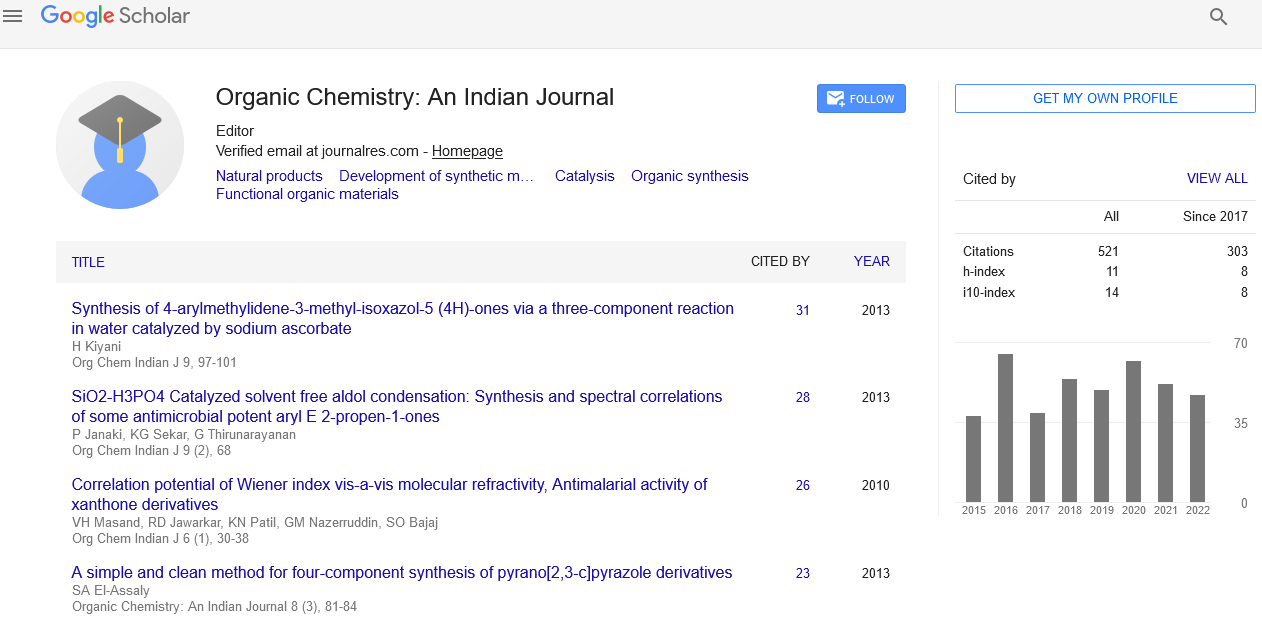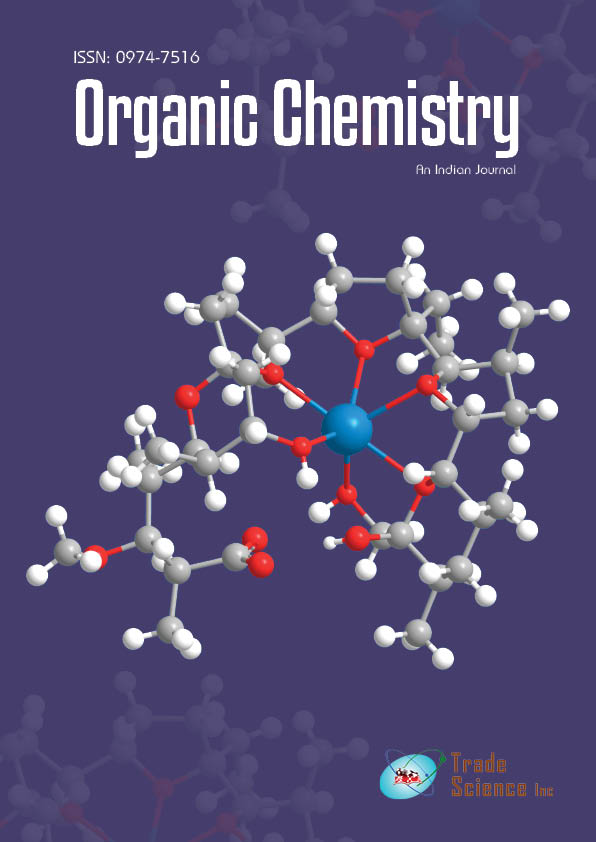Editorial
, Volume: 15( 6)Best Practices, Challenges, And Opportunities For Benchmarking In Catalysis Science
- *Correspondence:
- Reny Yuong Editorial office, Trade Science Inc., UK, E-mail: organicchem@journalres.com
Received: June 02, 2021; Accepted: June 11, 2021; Published: June 23, 2021
Citation: Yuong R. Best Practices, Challenges and Opportunities for Benchmarking in Catalysis Science. Org Chem Ind J. 2021;15(5):21
Abstract
Benchmarking is a community-based and (ideally) community-driven activity that involves consensus-based judgments about how to create repeatable, fair, and meaningful assessments. Activity, selectivity, and the deactivation profile are significant catalytic performance measures in catalysis science, allowing comparisons between new and established catalysts. To ensure that the full value of research data may be realised, benchmarking also necessitates meticulous documenting, archiving, and sharing of methodologies and measurements. Beyond these objectives, benchmarking offers unique potential to deepen and accelerate our understanding of complicated chemical systems by combining and comparing experimental data from a variety of in situ and operando approaches with theoretical insights generated from model system computations. The origins and applications of benchmarking in computational catalysis, heterogeneous catalysis, molecular catalysis, and electrocatalysis are discussed in this Perspective. It also covers the opportunities and challenges that these areas may face in the future.
Commentary
Benchmarking is a community-based and (ideally) community-driven activity that involves consensus-based judgments about how to create repeatable, fair, and meaningful assessments. Activity, selectivity, and the deactivation profile are significant catalytic performance measures in catalysis science, allowing comparisons between new and established catalysts. To ensure that the full value of research data may be realized, benchmarking also necessitates meticulous documenting, archiving, and sharing of methodologies and measurements. Beyond these objectives, benchmarking offers unique potential to deepen and accelerate our understanding of complicated chemical systems by combining and comparing experimental data from a variety of in situ and operando approaches with theoretical insights generated from model system computations. The origins and applications of benchmarking in computational catalysis, heterogeneous catalysis, molecular catalysis, and electrocatalysis are discussed in this Perspective. It also covers the opportunities and challenges that these areas may face in the future.
Ongoing advances in the controlled amalgamation of solvent and strong impetuses, their nitty gritty portrayal at the nuclear as well as sub-atomic scales under sensible response conditions, and complex computational displaying of tolerably huge frameworks, are joining to make another worldview for catalysis research dependent on phenomenal knowledge into structure-movement/selectivity connections at the level of the dynamic site. Simultaneously, catalysis research has become a genuinely worldwide action, connecting with a huge number of analysts worldwide. This exertion creates ever-bigger measures of data, which stances challenges for suitable documentation, chronicling, and information sharing. Deliberate endeavors toward benchmarking in and among subfields of catalysis (atomic, heterogeneous, photo catalysis, electro catalysis, bio catalysis, computational demonstrating, and so on) will assume a basic part in speeding up disclosure, refining understanding, and advancing the utilization of better impetuses. The objective of this Perspective is to bring up central points of interest and examine rules for the wise execution of benchmarking in catalysis science.
Benchmarking can be characterized as the interpretation into substantial terms of a theoretical logical paradigm; moreover, it requires a local area exertion to assess results utilizing the logical method. The actual benchmarks have both specialized parts (e.g., the acknowledgment of focal examination questions) and social segments (e.g., the guidelines for testing these inquiries). As such, benchmarking requires correspondence and cooperation inside a local area to build up agreement about which questions are substantial and how to assess their answers. Clients of benchmarks should choose issues and strategies for estimation that are sensible, to try not to predisposition their exploration toward results that are not extensively applicable. An effective benchmark will be open, reasonable, clear, pertinent, feasible, versatile, reproducible, and scalable.
In research, efforts to increase reproducibility and efficacy, as well as the need for improved documenting of both techniques and findings in scientific reporting, frequently generate benchmarking talks. “An article about computational science in a scientific magazine is not the scholarship itself, it is merely advertisement of the scholarship,” said statisticians Buckheit and Donoho, echoing Claerbout. The actual scholarship consists of the entire software development environment as well as the entire set of instructions used to generate the figures.” Reproducible research, according to Donoho, has the following benefits: Stronger work and work habits; better teamwork; more effect, as a result of less unintended competition and more appreciation; and greater continuity and cumulative influence. Study data is easily accessible, which makes replication easier and allows for the reuse of old data for new research. We expect greater stewardship of and access to public goods as a result of taxpayer-funded research as additional benefits of more effective record keeping.

